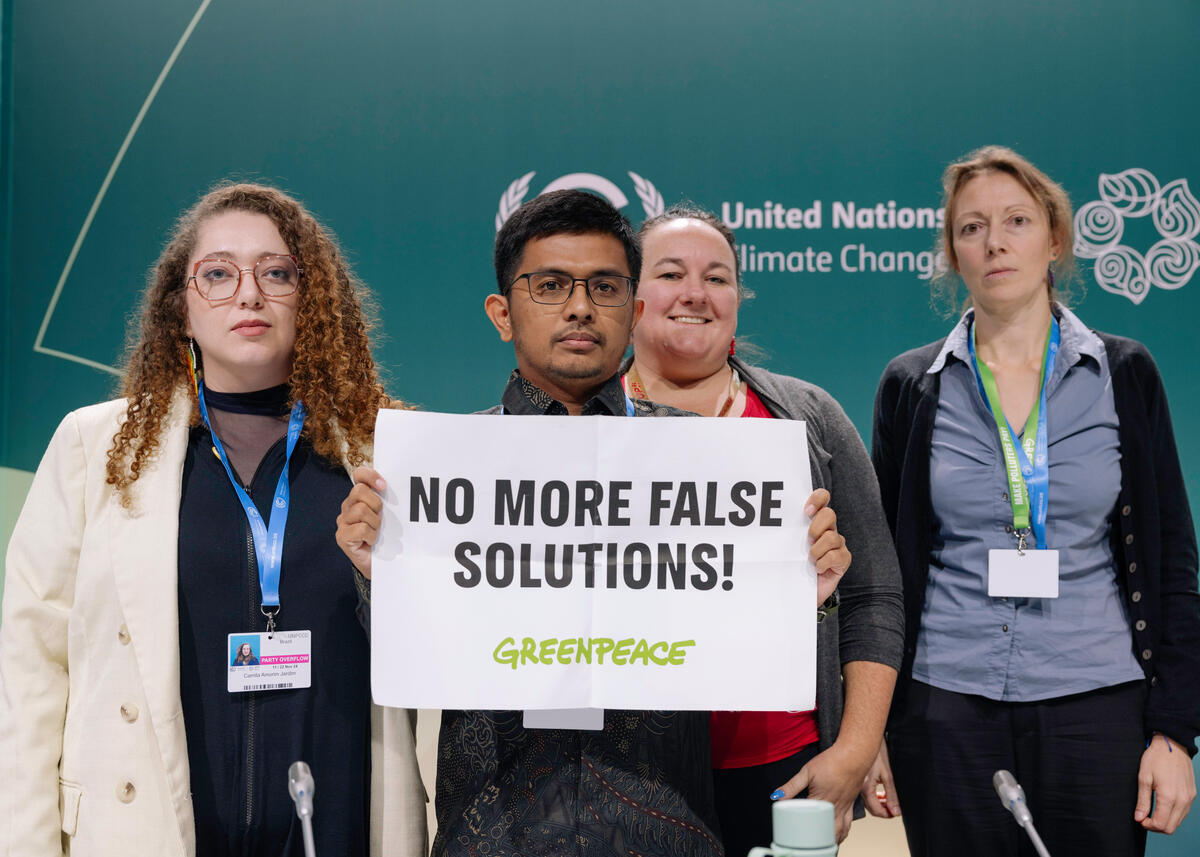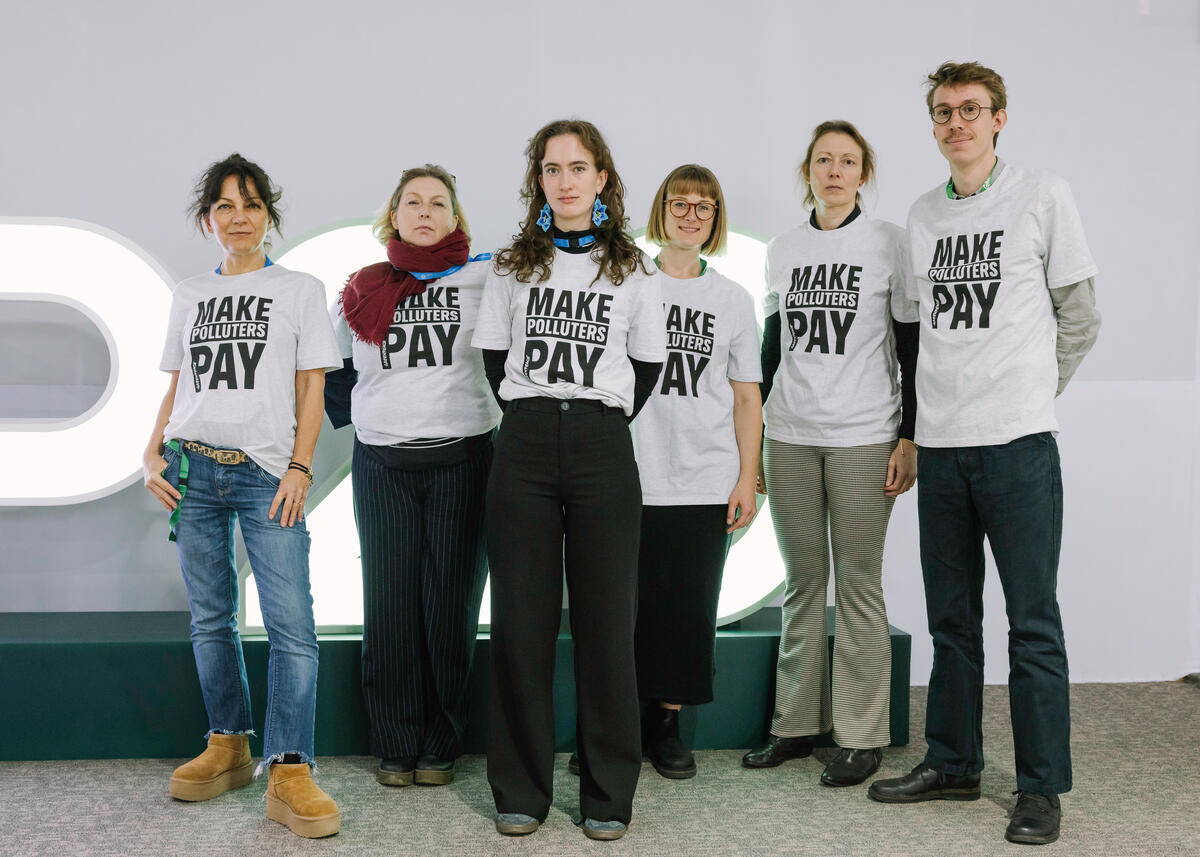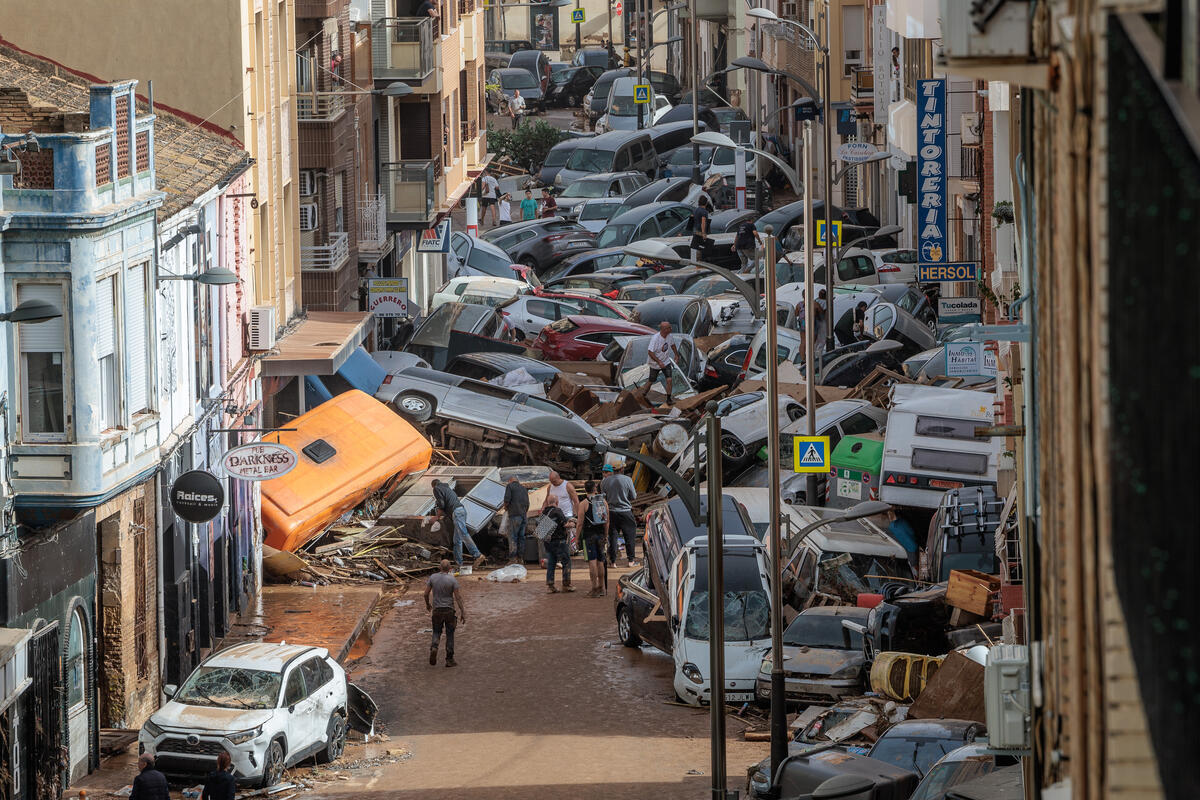If you're unfamiliar with carbon markets, let's be very clear from the start: they're not good. In fact, they allow polluters to continue trashing the climate. They're a false solution and a scam.
Trading 'carbon offset credits' doesn't stop emissions from entering the atmosphere and warming our world – they just provide a smokescreen to stop those emissions from appearing on the ledgers of polluters.

The United Nations Climate Change Conference, also known as COP29, in Baku, Azerbaijan started badly when insufficient rules for carbon markets were pushed through on the first day, breaking a yearslong deadlock over this contentious issue. But what is actually needed at COP29, and beyond, is a focus on real solutions for climate finance and mitigation – governments must make polluters pay and must reduce emissions in all sectors now.
The impacts of the climate crisis have never been more apparent, as extreme weather and other climate disasters threaten lives and livelihoods around the world. But at COP29, governments' assignment of stopping the worst of climate change simply took a back seat to another agenda: finding ways to let polluters keep on doing business as usual despite the bleak reality.

Azerbaijan, the COP29 host and a major fossil fuel exporter, pushed these carbon trading schemes rules through for an early win at the climate summit. But there is still a critical lack of evidence that carbon offsetting even works, a thorough risk and impact assessment of carbon market developments is still missing to date.
The last few years have seen scandal after scandal in the schemes of false solutions, from ineffective projects to exploitations against Indigenous Peoples. The last two COP climate conferences alone have negotiated rules to implement carbon markets, yet governments rejected them both times because of serious flaws in the definition of removal activities and proposed methodologies.
But now, before world leaders had a real chance to put forward real solutions, and despite civil society and activists speaking up alongside certain opposing countries, the COP29 Presidency pushed through texts on carbon markets rules without further consultation. Governments are under increasing pressure to show progress on serious finance contributions and strong emissions cuts.
However, let's not forget why governments are under pressure. Because we need climate action. Cutting quick side deals on a false solution won't meet the mark in climate negotiations. Allowing petrostates – countries whose wealth comes largely from the production and sale of oil and gas – to workshop and sell these dishonest carbon market schemes as solution to the massive climate finance gap and the lack of action is an outrage at any time but especially in a year on track to the warmest on record, when floods have destroyed homes in countries across the world this year, and typhoons and hurricanes are striking communities with unprecedented intensity.

What we actually need is to tax polluters and the ultra-rich to respond to the widespread, deadly consequences of their endless pursuit of profit during a global crisis that they caused. Governments need to deliver ambitious and just climate finance. Governments must stop the financial sector's continued investment in destructive high-emissions industries, further resulting in heavy impacts on society and nature. Governments need to end environmentally harmful subsidies and secure the physical safety and economic livelihood of their citizens. Compensation payments for continued emissions is not climate finance!
The nature and climate crises are closely linked. To invest in real solutions we must recognise not only the close connection between loss of biodiversity in nature and climate change, but also the fact that solutions to protecting nature and stopping climate change are intertwined, not trade-offs.
Read more about the connection between climate change and nature loss.
Iqbal Damanik is a Forest Campaigner at Greenpeace Indonesia and Jannes Stoppel is a Policy Advisor Biodiversity and Climate Policy at Greenpeace International.






